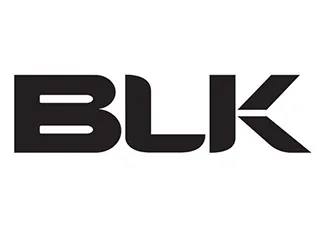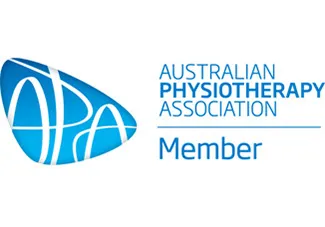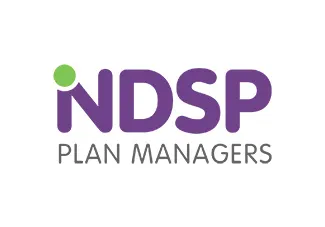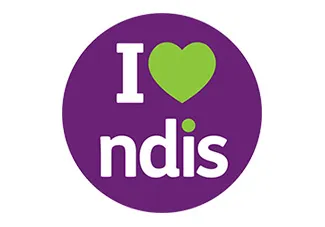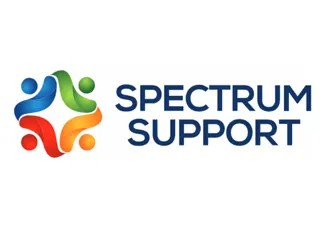Wollongong Occupational Therapy
Move better, live better with Occupational Therapy services across Australia
At Physio Inq, our occupational therapy (OT) team helps people live more independently and confidently, wherever they feel most comfortable. We bring Mornington Peninsula occupational therapy to your home or via telehealth so you can get support without reshuffling work, family routines or transport. This means less disruption to your week and more support in the place where daily life actually happens.
Whether you’re trying to stay independent at home, support a loved one or get back into routines after illness, injury or age-related change, we meet you where you are with in-home and community-based care. By bringing occupational therapy to your home or local area, we help you save time, avoid travel stress and focus on changes that make a real difference in your everyday routine.
Occupational therapists work with people to make everyday activities easier, whether that means getting dressed, cooking a meal, or managing work or study. We look at what’s getting in the way and help you find safer, simpler ways to do the things that matter to you, using practical strategies that fit your home, your schedule and your priorities.
What is Occupational Therapy (OT)?
Occupational therapy focuses on helping people take part in meaningful daily activities by improving the fit between the person’s environment and what they want or need to do.
In simple terms, occupational therapy is about helping you do the things that matter most safely and confidently, with less frustration. That might mean moving around your home more easily, managing daily self-care with less assistance, keeping up with work demands or feeling more in control of your routines.
Our therapists support people of all ages living with disabilities, injuries or age-related changes. Whether it’s dressing, cooking, driving, working or learning, we help build the skills, confidence and setup needed to live a life with less limits. We focus on practical steps that support independence in real settings like your home, school, workplace or community, so what you practise in sessions makes sense in daily life.
Occupational Therapy vs Physiotherapy: What’s the Difference?
Physiotherapists focus on improving how the body moves and functions, such as strength, balance, and pain management through in-home and telehealth services across Australia.
Occupational therapists focus on helping people use those physical abilities in everyday life: cooking, dressing, working, studying or socialising.
When combined, occupational therapy and physiotherapy can support everyday function, helping you use movement improvements in the moments that matter, like getting through morning routines, returning to work tasks or staying active socially when possible. Learn more about our Physiotherapy services.
Why you might need an Occupational Therapist
You don’t need to wait until daily tasks become overwhelming to seek support. Many people reach out when small challenges start adding up, whether that’s feeling less steady at home, struggling to keep up with routines or finding everyday tasks more tiring than they used to be.
You may benefit from working with an occupational therapist if you:
- are living with a physical disability or long-term health condition
- have had an illness, injury or surgery and want support to get back into everyday routines when possible
- have learning or developmental challenges
- are experiencing changes in mood, memory, or mental health
- are getting older and want to stay safe and independent at home
Occupational therapy helps you stay involved in the activities that matter most to you with practical strategies that reduce strain, improve safety and support long-term independence. Physio Inq provides this same approach to care across Australia, including for clients who want flexible in-home and telehealth support.
What to Expect from Your Home OT Sessions
A home-based OT session is highly functional. Because we see you in your actual living environment, we can identify barriers and opportunities that a clinic setting might miss.
Key Services and Interventions
Our Occupational Therapists provide a range of targeted interventions designed to improve your quality of life:
- Assistive Technology and Equipment Prescription: We assess and trial equipment that can make daily tasks more manageable, such as wheelchairs, modified kitchen aids, specialised seating and lift chairs. Recommendations are made with your comfort, movement and home environment in mind, so the equipment works naturally within your day.
- Minor and Major Home Modification Assessments: To improve safety and accessibility, we review your home and suggest changes that can reduce risk and improve movement. This may include simple additions like bathroom grab rails and ramps or larger adjustments such as wet-room conversions, depending on what will best support your daily routines.
- Functional Capacity and Skill-Building Programs: We help you build practical routines for ‘Activities of Daily Living’ (ADLs) like cooking, dressing, and personal care. Support is also provided to help you feel more confident moving around your community and managing daily responsibilities at your own pace.
- Sensory Processing and Cognitive Retraining: We offer strategies to assist with self-regulation, memory and planning skills. These supports can be helpful for people managing neurological conditions or mental health challenges, making it easier to stay engaged in everyday activities.
- Upper Limb and Fine Motor Rehabilitation: Therapy focuses on improving hand and arm use after injury, surgery or stroke. For children, this often supports skills such as handwriting, coordination, and tasks used at school and at home.
All our therapists are registered with the Occupational Therapy Board of Australia, ensuring you receive care that meets national clinical standards.
Who We Support
Our OTs assist people under:
- NDIS plans: including functional assessments, assistive technology, and progress reporting.
- Aged Care (HCP & CHSP): supporting independence and safety at home.
- Private & insurance clients: including post-injury or post-surgery support for everyday function when achievable.
- Children & teens: sensory, developmental and school participation needs.
How Physio Inq Occupational Therapists Can Help
People Living With Disability (NDIS Participants)
Our NDIS occupational therapists provide in-home and community-based support for people with physical, cognitive, and psychosocial disabilities.
During your sessions, your occupational therapist focuses on practical supports that can make daily life easier and safer, including:
- Assistive technology and equipment support, including assessment, trial and guidance on using items that improve comfort, mobility and independence at home and in the community
- Home environment assessments and reports, identifying changes that improve access, safety and day-to-day ease
- Skill-building support for daily routines like cooking, personal care and community access so you can participate more confidently when possible
- Improved Daily Living assessments and clear recommendations aligned with your goals and NDIS requirements
Every Physio Inq OT works closely with participants, families, and support coordinators so recommendations are practical, realistic and suited to everyday life. This same coordinated approach is also used across our wider network, including for clients accessing services who benefit from integrated allied health support.
Aged Care
Ageing can make daily tasks more challenging, but the right strategies and equipment can help people maintain independence and safety.
Our aged care occupational therapists help older adults stay comfortable, confident and safe at home for as long as possible. During in-home visits, we focus on practical improvements that support daily living, including:
- Reducing fall risks around the home
- Supporting safer movement through common areas like bathrooms, hallways and entrances
- Recommending easy-to-use equipment or simple techniques that make everyday activities more manageable
We work collaboratively with clients, families, and care teams to promote confidence and comfort at home and give families greater peace of mind.
Paediatric Occupational Therapy
Our paediatric occupational therapists support children of all ages, from early childhood through to adolescence, to develop the skills they need for everyday life. Therapy may focus on:
- sensory processing and self-regulation
- fine and gross motor skills
- social and behavioural development
- handwriting and classroom participation
- play and daily routines
Sessions are designed to fit naturally into your child’s routines and play-based activities. We focus on confidence, independence and participation so your child can feel more capable at home, at school and in social settings.
The same is true for other Physio Inq offerings, including in-home and telehealth care options.
Our Occupational Therapists have all the equipment and skill sets they need to carry out in-home treatments of any type. Our occupational therapists arrive prepared, so sessions can stay focused on what will help most in your day-to-day life.
We will assist you and your family in any way that can improve daily function and activities. After an initial assessment, your Physio Inq OT will coordinate with you, other relevant professionals, carers, and family members to assist in developing a treatment plan and strategy that is best suited. After your initial assessment, your Physio Inq OT works with you, your family and your support team when needed to set clear goals and agree on practical steps you can use at home and in the community.
Other Occupational Therapy services that Physio Inq is able to offer
- Home modifications
- Specialised Equipment prescription
- Home rehabilitation
- Falls prevention
- Upper limb assessment & therapy
- Structural modification
- Specialised seating/ wheelchair prescription
- Scooter & mobility assessment and training
- Palliative care
- Chronic pain management
- Stroke & neurological rehabilitation
- Support disability accommodation assessment
- Supported independent living assessment
- Links to community facilities & resource
- Cognitive assessment & retraining
- Access solutions
- Pressure care
- Pressure cushion
- Pressure mattress
- Pressure area care
- Electric bed and chair prescription/review
- Dementia Care & Planning
- Complex & customised equipment
- And much more
- NDIS Occupational Therapy
- Paediatric Occupational Therapy
- Aged Care Occupational Therapy
- Driving Assessments
Ready to get started? Book an in-home or telehealth occupational therapy appointment today, or make a referral online.
Make a Referral
How Our Occupational Therapists Help at Home
Our mobile occupational therapists come to you, wherever possible. We evaluate your environment and recommend practical solutions that make everyday tasks easier, safer and more comfortable.
When we visit your home, we focus on real-world improvements, helping you move more easily through your space, complete daily tasks with less effort and feel safer in your own environment when possible.
Examples of in-home OT support:
- Home and functional assessments for daily living skills
- Equipment prescription and minor home modifications
- Pressure care, seating and positioning advice
- Cognitive, sensory and behavioural strategies
- Falls prevention and energy conservation techniques
About Physio Inq’s Care
- Strong history in home-based care
- A large national team that helps deliver consistent, reliable care, even when your needs change over time
- NDIS registered provider
- Home Care Package (HCP) and Commonwealth Home Support Program (CHSP)*
- Responsive scheduling based on your needs and availability where possible
- Dedicated support from our National Support Office for clients and referrers
- Access to multiple disciplines and services under one roof
- Large geographical coverage
- Clear, timely reporting that keeps your care team and funding providers informed and aligned with your goals
- Experienced therapy team
* through partnerships with your registered provider
We are committed to providing our service in-home wherever possible.
From time to time, circumstances such as staffing, demand and availability may prevent this from occurring. In those instances, we will assist in arranging alternative service methods such as telehealth for Occupational Therapy. We aim to provide in-home services wherever possible.
If an in-home visit isn’t available due to staffing, demand or scheduling limits, we can support you through telehealth occupational therapy so you can still access care.
Suburbs that our therapists currently service in Wollongong, New South Wales:
- Albion Park
- Avon
- Avondale
- Balgownie
- Bellambi
- Berkeley
- Brownsville
- Bulli
- Cataract
- Cleveland


